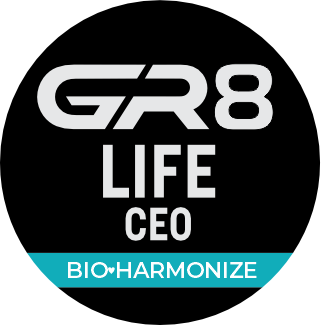You are not the same person you were a second ago, let alone yesterday.

Your body is replacing cells and rejuvenating its systems at a frantic pace. Your body contains some 37 trillion cells (Bianconi et al., 2013). That’s a much bigger number than the count of galaxies in the known universe. Old cells are dying and new ones replacing them all the time. Each second, over 810,000 cells are being replaced. Your body produces one trillion new red blood cells per day (Wahlestedt et al., 2017).
As they circulate through your veins and arteries, red blood cells carry oxygen and nutrients and removes waste and toxins at the capillaries for every cell in your body. Each blood cell has a lifetime of about four months, after which the liver extracts its vital ingredients and sends the rest to the spleen for recycling. You don’t have a single red blood cell in your body that you had six months ago. Every one has been replaced.
YOUR BODY IS CONSTANTLY REGENERATING ITSELF
- The lining of your digestive tract also undergoes rapid turnover. It’s replaced every four days.
- Your lung tissue? Every eight days.
- Even the densest of tissues, your bones, are constantly regenerating, with 10 percent of your skeleton being replaced each year.
- There are about 84 billion neurons in the brain, along with a similar number of non-neural cells (Azevedo et al., 2009).
- Our brains are growing new neural cells continuously, and each cell can connect with thousands of others, weaving an interconnected web of an estimated 150 trillion synapses (Sukel, 2011).
- Our brains are replacing at least one neuron per second (Walløe, Pakkenberg, & Fabricius, 2014).
- The hippocampus is the part of the brain responsible for memory and learning. It’s constantly adding new neurons and synapses while pruning others. Some neural pathways are shrinking, and the volume of those parts of the hippocampus diminishes. Other neural pathways are growing, with their volume expanding.
- When a patient has a liver transplant, half the liver of the donor is typically removed and transplanted into the body of the new host. Yet so fast do liver cells regenerate that within eight weeks the donor’s liver has grown back to its original size (Nadalin et al., 2004).
- The corneal cells on the surface of your eye can regenerate within 24 hours.
- Your skin is being entirely replaced every month.
- The lining of your stomach is renewing itself every week and your colon even faster.
- The oldest cell now in your liver is about five months old
- The self you were yesterday is not the self you are today.
Even the heart regenerates. Until very recently, scientists believed that the heart does not regenerate and that once heart cells have died, they are not replaced. But recent research shows that heart tissue contains regions of stem cells that are available to replace damaged or dead cells and that the entire heart regenerates at least three times in the course of a person’s life (Laflamme & Murry, 2011).
Welcome to the new you! This continual turnover of the fundamental building blocks of our bodies has profound implications for how quickly and completely we can heal. Our bodies are programmed to heal.
